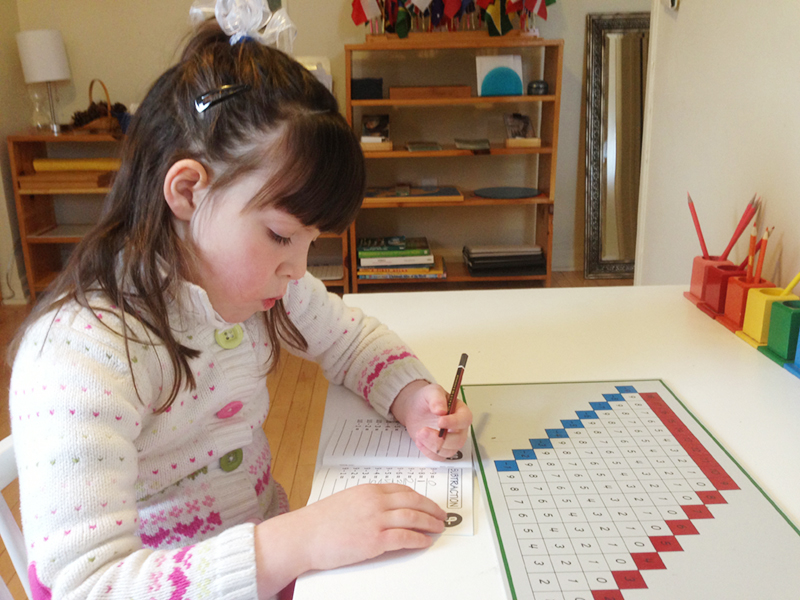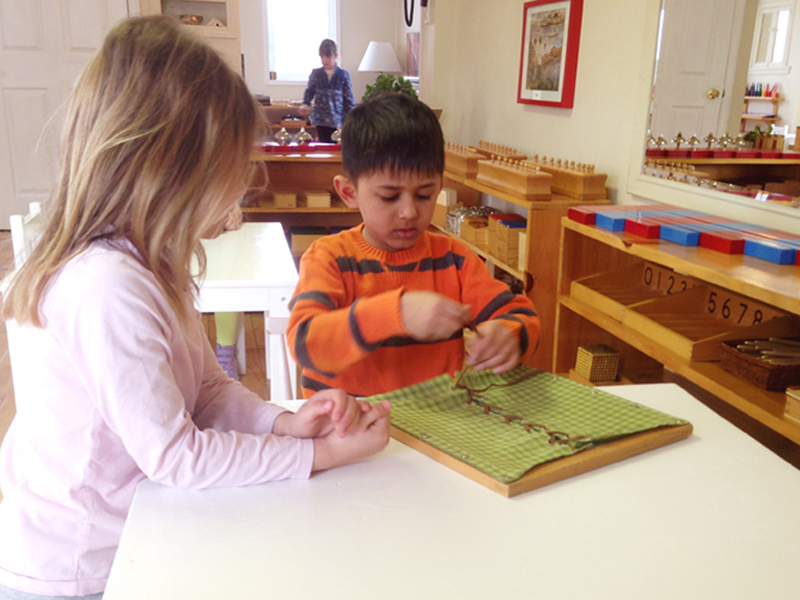Intrinsic rewards contribute to healthier development of children. Extrinsic rewards give momentary results.

As a Montessorian, I believe in neither rewards nor punishments. As hard as this has been, in this journey, I have learned that lessons are learned at a far deeper level without either. While rewarding and/or punishing may give us quick results, however, the question that we need to ask ourselves is, “How our action of rewards and punishments serve the child in the long run?”
In a Montessori classroom, this is achieved through encouraging children to be the judge of their own work. A child that takes pride in his work is celebrated with, by asking questions such as, “Oh, do you like your work? Which part of what you did, did you most enjoy? How did you feel when you finished it ‘all by yourself’ and put away your work nicely?” This encourages the child to evaluate his work, rather than expecting the adult to validate his/her work with words such as, “Great job. Excellent. Lovely.” And should the child choose to say, their work is indeed wonderful and amazing, then, the adult simply acknowledges with the same enthusiasm. The advantage with intrinsic rewards is that the child gets to be the judge of his own work. This builds confidence and in turn prepares them to be stronger individuals growing up.

Research has proven time and again that punishments are short term solutions to issues. Unlike adults, a child lives in that very moment and, as a consequence, even a usually calm child may be unruly at times depending on his/her mood. Thus, in a Montessori classroom, unruly behavior is dealt by merely redirecting children to another piece of work or by simply having conversations in a calm and composed manner. Should a child be extremely disruptive, then, an adult takes the child out of the classroom for a short walk, often to do simple chores like bringing a flower vase to another classroom or returning a book to the library. In line with the Montessori philosophy of respecting the children, the situation is dealt with in a manner that protects the integrity of the child and the classroom at all times.
In our collective, over 20 years of Montessori experience, we have always found that intrinsic rewards together with positive redirection contribute to a healthy learning environment. Dr. Montessori knew it better over 100 years ago. We have no stickers or candies for good work and no time-outs or punishment corners for dealing with problem children. You will be amazed to see how focused a Montessori classroom functions. Feel free to contact us to come and observe your little ones in our classroom.

